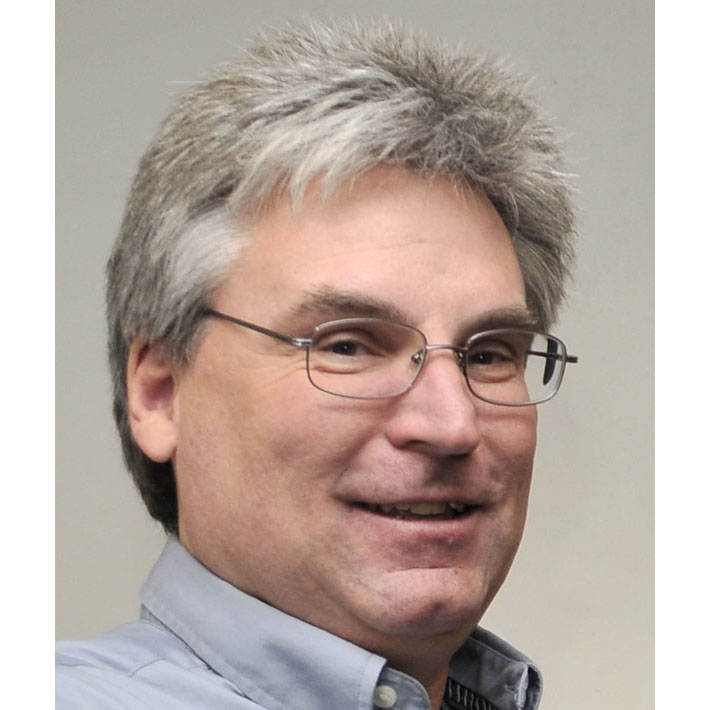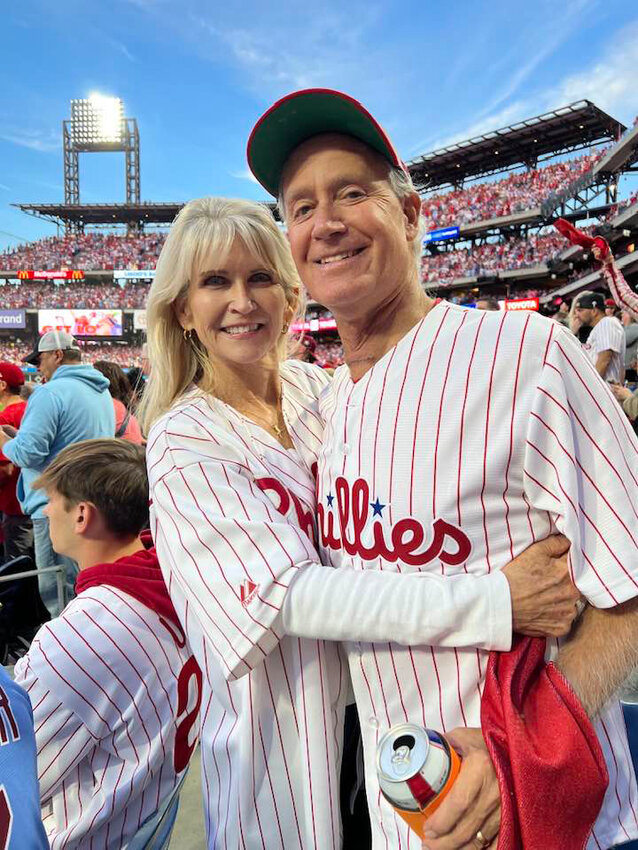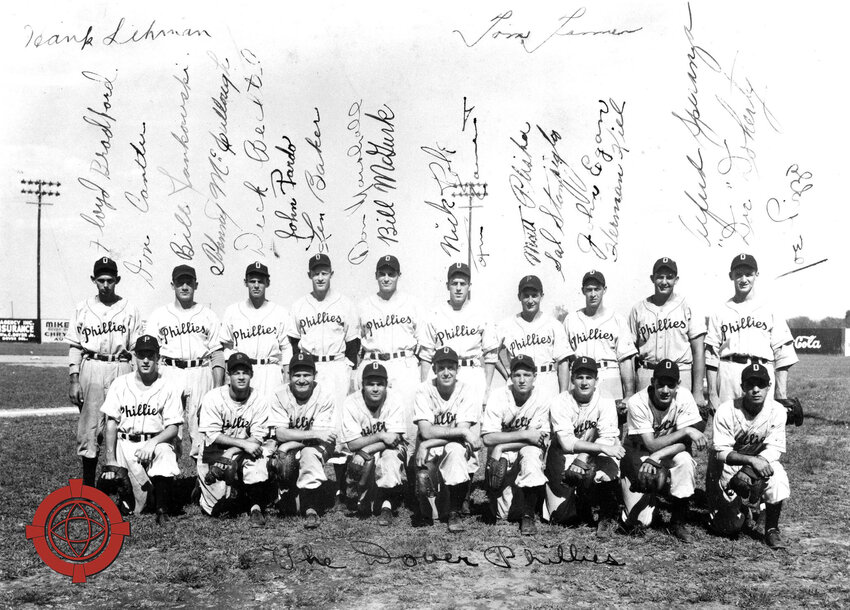Delaware's Phillies phans appreciate Red October
DOVER — Much of Delaware seems to have Phillies Phever right now.
For those who have been bleeding Phillies red for decades, this is a moment worth savoring.
The Phillies open the National League Championship Series Monday night against the Arizona Diamondbacks.
This will be Philadelphia’s ninth shot at a National League pennant, and perhaps a run at a third World Series title.
That might seem like an impressive history, but keep in mind that the Phillies first won a National League pennant in 1915.
Phillies fans have suffered. Consider the team’s history of more than 10,000 losses — the most of any professional sports team — since 1833.
Bill Winters, of Dover, is one of the diehards.
“Through the good and bad,” he said.
He said his first memory of going to the see the Phillies was when he was 10 years old in 1964. His father and friends drove to Marcus Hook, Pennsylvania, and took a train into the city so they could attend Bat Day.
“We were two blocks from Connie Mack Stadium and we didn’t have tickets,” he said. “The police were driving around in their cars and on the intercoms were telling people that if you didn’t have tickets to turn around. Sold out for Bat Day.
“That’s how far back I go back.”
He said he did not get to a game in person until Veterans Stadium opened in 1971.
Mr. Winters and his wife, Joan, were among the 45,798 at Wednesday’s 10-2 Phillies’ win over the Braves.
“It was incredible – six home runs, with multiple home runs from (Nick) Castellanos and (Bryce) Harper,” said Mr. Winters. “The crowd was just so into the game.
“You could barely talk to the person next to you. You had to scream to be heard. It was that loud.”
***
Thinking about the Phillies, this editor started jotting down the Phillies’ ties to Delaware over the decades:
• When the Phillies won the World Series for the first time in 1980, the owner was Delawarean Ruly Carpenter, who inherited the team from his father. Mr. Carpenter, who lived in Montchanin in New Castle County, sold the team a year later after growing concerns about player salaries.
His father, R.R.M. Carpenter, owned the team from 1943 to 1972.
• Another Delawarean, the fiery Dallas Green, managed the 1980 champions.
• Among the Phillies’ biggest stars was Chris Short, a hard-throwing southpaw who graduated from Lewes High School. He was twice an all-star in the 1960s and recognized as the Phillies’ best lefthanded pitcher until Steve Carlton came around.
•Huck Betts, a Millsboro native, pitched for the Phillies in the 1920s and later for the Boston Braves when Babe Ruth was a teammate. In addition to his baseball career, he was well known as the owner of the Ball Theater in Millsboro. It had a large baseball on its rooftop.
•The Dover Phillies were a minor league affiliate of the Philadelphia team from 1946-48. They played in an 1,800-seat ballpark that was on Court Street, in between where the Wawa and Legislative Hall stand today.
The 1948 club was among the worst in baseball history, finishing 26-10 – 65 ½ games behind Salisbury, the Eastern Shore Baseball League champions.
•For decades, baseball fans from Southern Delaware took passenger trains north to Philadelphia. Doug Poore, of the Harrington Historical Society, said scores of fans would ride the rails to North Broad Street and walk a few blocks to Connie Mack Stadium.
A few weeks prior to the 1950 World Series in which the Phillies were swept by the New York Yankees, the Harrington Journal had a blurb about a Pennsylvania Railroad train leaving at 11 a.m. for a 1:30 game against the Brooklyn Dodgers. The air-conditioned train included dining service up and back.
• In 1915, a hotspot to follow the Phillies-Boston Red Sox World Series was the Dover Opera House (now the Schwartz Center). A historical marker says, “Lights were arranged to simulate a baseball diamond, and as plays took place, a telegrapher wired the action to the Opera House where an operator lighted the screen.”
***
There were high hopes among local baseball fans that the Phillies and Baltimore Orioles might meet up in the World Series.
Unfortunately, the Texas Rangers swept the Orioles in three games.
The thought of the two meeting up brought out some nostalgia about former Orioles greats, including Seaford’s Delino DeShields, who came from the area.
Bruce Pringle, a former Delaware State News reporter, shared a great list of ideas, including memories of a Vic Sadot song called, “The Comeback Kids.” The late Delaware songwriter wrote it as an ode to baseball and his beloved Orioles.
In a note Monday, Mr. Pringle wrote, “Never have the ‘23 Orioles been more in need of a comeback.”
***
It’s interesting in Delaware that there is a greater population of Orioles fans in Sussex County.
The reason, as Mr. Poore reminded this editor, ties back to those passenger trains to Philadelphia and broadcast rights that cut through lower Delaware. On television, the Orioles were shown across Southern Delaware.
“Literally, you can draw a line just about through Magnolia,” said Mr. Poore. “That’s how it pretty much goes.”
***
Just as an aside, Mr. Poore shared a humorous tale about a Harrington doctor that had Phillies Phever.
William T. Chipman, a physician for four decades in the small town, once was heading up to a Phillies game with a friend.
“Dr. Chipman had a tremendous lead foot,” said Mr. Poore.
Just before Dover, a police officer caught him speeding.
“He tells his friend to start acting like he’s having a seizure,” Mr. Poore said.
Dr. Chipman flashed his medical credentials and said he needed to get to the friend to the hospital. The officer sent them on their way.
We assume he made it up to Connie Mack without missing a pitch.
Andrew West is editor-in-chief of the Daily State News and its sister publications on Delmarva. His father took him to his first Phillies game at Connie Mack Stadium.

 By
By 





